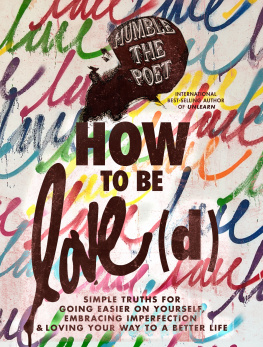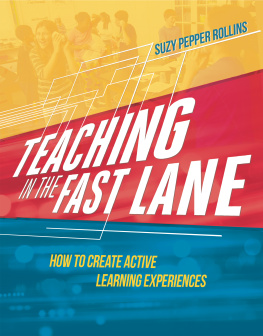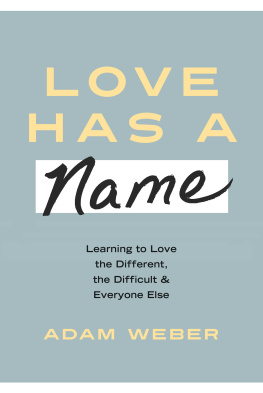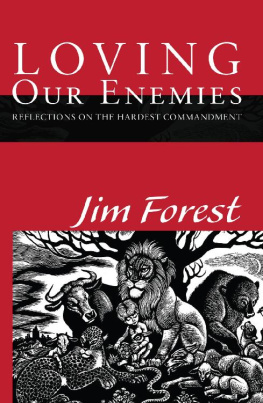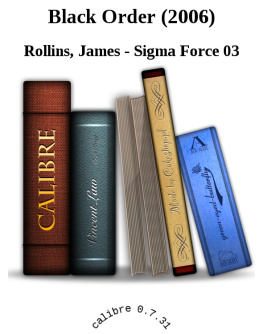Thank you for purchasing this Howard Books eBook.
Join our mailing list and get updates on new releases, deals, bonus content and other great books from Howard Books and Simon & Schuster.
C LICK H ERE T O S IGN U P
or visit us online to sign up at
eBookNews.SimonandSchuster.com

Contents
For Eleven | amour courtois
INTRODUCTION
The Apocalypse Isnt Coming, It Has Already Arrived
In popular religious literature, we find a deep fascination with the apocalypse. Millions have been made depicting the destruction of the world, the end times, and a war between the forces of good and evil that will usher in a new age.
These various depictions of the end seem to bask in a visceral and voyeuristic orgy of blood. Yet such reactionary views of the apocalypse, while seemingly ready to do away with everything, actually present an inherently conservative vision. For in destroying the world something fundamental is saved from the flames: namely, our desire for the perfect world.
In this vision of the apocalypse, the world that we inhabit is burnt up and replaced with a similar one that is only different from the present insomuch as it is a place where all our unfulfilled hopes and desires are finally satisfied. It is a world where that which we long for finally arrives. A world in which the sense of loss, pain, and unknowing that supposedly robs our life of pleasure is replaced with abundance, joy, and insight.
This new world is thought of as a place in which our current desires and longings find their ultimate fulfillment. What we hope for, dream about, and desire is not changed in any significant wayinstead, our hopes, dreams, and desires are simply satisfied. In this way, everything is consumed in flames except for one thing: our desire for perfection. And so the main problem with these depictions of total destruction is not that they go too far, but that they dont go far enough .
The main problem with these depictions of total destruction is not that they go too far, but that they dont go far enough .
Today the Good News of Christianity operates with much the same logic. It is sold to us as that which can fulfill our desire rather than as that which evokes a transformation in the very way that we desire. Like every other product that promises us fulfillment, Christ becomes yet another object in the world that is offered to us as a way of gaining insight and ultimate satisfaction. Jesus is thus presented as the solution to two interconnected problems: that we exist in a state of darkness concerning the meaning of the universe and that we are dissatisfied with our place within that universe.
The precise way that Jesus answers these problems is contested by different religious communities, and thus the way that Jesus is thought to provide a solution differs depending on whom one asks. History is overflowing with different portraits depicting the way that Jesus is the answerJesus the Marxist, Jesus the Capitalist, Jesus the meek, Jesus the mercenary, Jesus the social reformer, and Jesus the social conserver to name but a few. This enigmatic figure who died naked on a cross more than two thousand years ago has been clothed in various colorful ideological garments over the millennia.
When confronted with such a diverse and complex theological ecosystem, one full of differing and often competing images, one might despair of ever really working out how Jesus concretely answers these universal problems. With so many conflicting ideas, where is one to start? Did Jesus come to abolish religion or set up a new one? Did he seek to show us a way of escaping the world or of embracing it? Did he die to save us from our evil or did he die because our evil could not bear his presence? Did he even exist, and what is really known about him beyond the doctrinal claims of the church?
Over the ages various Christians have thrown their weight into these discussions, and we might be tempted to do the same. However, this book takes a different path, one that sees all these discussions as dangerous distractions that prevent us from touching upon the truly radical and revolutionary significance of Christ. For what if we cannot grasp the manner in which Christ is the solution to the problem of our darkness and dissatisfaction precisely because he isnt the solution? What if, instead of being the solution (i.e., the one who offers a way for us to gain certainty and satisfaction), he actually confronts us as a problem, a problem that places every attempt to find a solution for these ailments into question? To put this another way, what if Christ does not fill the empty cup we bring to him but rather smashes it to pieces, bringing freedom, not from our darkness and dissatisfaction, but freedom from our felt need to escape them?
It is the claim of this book that Christ signals a type of apocalyptic event much more dramatic than the one we find in fundamentalist literature. For in the figure of Christ we are confronted with an atomic event that does not destroy the world, but rather obliterates the way in which we exist within the world. In concrete terms, this means that the darkness and dissatisfaction that make their presence felt in our lives are not finally answered by certainty and satisfaction but are rather stripped of their weight and robbed of their sting.
In this way the new creation that arises in the aftermath of the Christ apocalypse is not out there but is a lived reality bubbling deep within. As Jesus once said, The kingdom of God does not come with your careful observation, nor will people say, Here it is, or There it is, because the kingdom of God is within you. (Luke 17:2021)
This book is about a salvation that takes places within our unknowing and dissatisfaction.
What follows then is an outline of what this proper apocalypse moment looks like. As such it is a work explicitly about the theme of salvationnot the type of salvation that is preached today from the pulpit, the false salvation that promises us freedom from our unknowing and dissatisfaction, but a salvation that takes places within our unknowing and dissatisfaction. One that directly confronts them, embraces them, and says amen to them.
Part One

T HE O LD C REATION
CHAPTER 1
The Church Shouldnt Do Worship Music, the Charts Have It Covered
Creatio ex Nihilo
Whether we look at our own personal history or reflect upon the history of civilization, it is difficult to avoid the sense that we feel a lack in the very depths of our being, a lack that we try to cover over with any number of religious, political, and cultural remedies. This feeling might touch us like a breeze or knock us over with the force of a hurricane, but however it comes, most of us can testify to the feeling that there is something just beyond our reach that might help to fill this void, whether it is a person, money, power, possessions, God, or heaven.
It is natural for us to think that our present discontent arises as a result of something we currently do not have. We imagine there might be a way of abolishing the feeling if only we had the money, fame, job, or health that currently evades us. But people from all walks of life seem to experience the same kind of dissatisfaction that we do, even when they have the very things we believe would make our lives whole. And on the occasions when we gain the thing we believe will make us happy, we find that the satisfaction we experience is at best partial and at worst utterly unfulfilling.
In order to approach the root cause of this dissatisfaction and work out why it seems so difficult to abolish, let us begin by reviving an obscure and seemingly absurd Latin phrase that refers to the idea of something coming from nothing: creatio ex nihilo .
Next page


